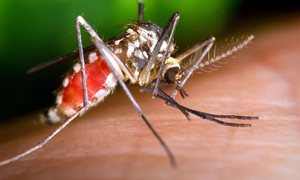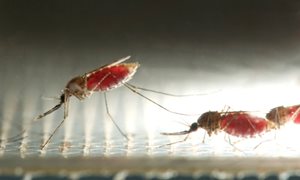
Our immune system consists of two parts; the innate and the acquired immune system. It has long been thought that the acquired part can learn to recognize the pathogens with which it comes into contact, and that the innate part cannot. But in recent years it has become clear that the innate immune system does have a memory and can therefore be 'trained'. This training means that a vaccination, such as the BCG vaccine, can prepare the immune system for, and arm it against, a disease - also of very different pathogens as those with which it has been trained. The pioneering work of Mihai Netea, theme Infectious diseases and global health, among others, focuses on this.
In two publications published this month in the scientific journal Cell, this trained immunity has been investigated for its potential for cancer treatments.
Transplantation of trained immunity
In the first study, in mice, Mihai Netea and colleagues at the University of Dresden were able to move trained immune effects from one individual to another by transplanting immune cells. To do so, they first trained the immune system of the donor animals by injecting a substance from fungi known to stimulate the innate immune system. This substance, β-glucan, changes the production of these cells, granulocytes, in the bone marrow in such a way that these cells are more aggressive against tumors. The mice that were subsequently administered these granulocytes also proved more resistant to tumor growth.
Even after transplanting bone marrow, the tissue that produces granulocytes, this effect remained visible. The study thus shows that the granulocytes can play a key role in the anti-tumor defense of the trained immune system.
Publication:Innate immune training of granulopoiesis promotes 1 anti-tumor activity.
Trained immunity by a designed molecule
In the second study, a large project in which Leo Joosten, theme Tumours of the digestive tract, and Raphael Duivenvoorden, theme Renal disorders, were also involved, it was shown that the trained immunity can be caused by a 'nanobiologic', a designed molecule. The nanobiologic from this study (called MTP10-HDL) was developed by Willem Mulder and colleagues from TU Eindhoven and Mount Sinai Medical School in New York.
Before the researchers arrived at MTP10-HDL, an extensive screening of all kinds of possible candidates was carried out. This specific molecule appeared to have an inhibitory effect on tumor growth in a mouse model. Subsequently, more in-depth research showed that here, too, the innate immune system was trained by a change in the bone marrow, stimulated by the nanobiologic. The result was that the immune system was able to penetrate more easily into the immediate vicinity of the tumor, which has an inhibiting effect on tumor growth, but may also make other treatments more effective as a kind of catalyst.
Publication: Trained immunity-promoting nanobiologics suppress tumor growth and potentiate checkpoint blockade immunotherapy
Mihai Netea: "These studies show that stimulating trained immunity can have an important anti-cancer effect. In combination with current immunotherapy with 'checkpoint inhibitors', boosting trained immunity has the potential to significantly improve cancer treatment".
Related news items

Grants for research on magnesium deficiency and malaria Vidis for Felix Hol and Jeroen de Baaij
1 July 2022 Radboudumc researchers Jeroen de Baaij and Felix Hol both receive an NWO Vidi grant for their research, respectively on magnesium deficiency in type 2 diabetes and on malaria. read more
Field research on malaria vaccine offers unexpected surprise
23 May 2022Field research on the effectiveness of a malaria vaccine, came up with unexpected results for an international group of researchers including Benjamin Mordmüller of Radboudumc. The vaccine evokes a broader response against malaria proteins than there are in the vaccine.
read more



